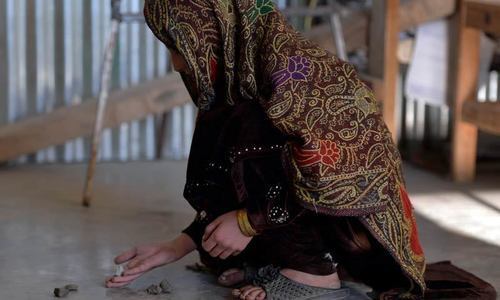
OSTENSIBLY designed to promote the settlement of disputes without resorting to formal litigation in the current social climate, the Alternate Dispute Resolution Bill adopted by the National Assembly last Friday could put justice at a greater discount.
The reference to the state’s duty “to ensure inexpensive and expeditious justice” should be read as a continuation of the chorus for cheap and quick justice raised by military dictators from Ayub Khan downward. The cost already paid for it can hardly be ignored.
The legislation that the federal government apparently wants adopted by all the provinces empowers courts to transfer all cases in 23 categories of disputes, from tenant-landlord conflict to family matters, contractual cases and property disputes, to alternate dispute resolution (ADR) centres, if both/all parties agree.
The ADR centres will be district panels of ‘neutrals’ selected by the government in consultation with the high court from amongst lawyers, retired judges, ex-bureaucrats, ulema, social workers, et al, and they will settle matters through mediation, conciliation or arbitration. If they fail to achieve a settlement, the matter will revert to court to be decided through formal litigation.
The idea of ADR is sound in theory but its success in a feudal-minded society is extremely debatable.
The idea of ADR is sound in theory but its success in a feudal-minded society that is far from settled or justly organised is extremely debatable. Incidentally, the present ADR scheme is materially different from the design debated at a national judicial conference some years ago, under which courts were to ask the parties in all cases to try for settlement under ADR. That scheme fell through, perhaps because of the threat it posed to senior lawyers.
The casual approach to the present legislation has already drawn fire. Media reports have noted that only 23 members, less than the quorum required, were present when the National Assembly adopted the bill. The lack of seriousness on the part of lawmakers becomes clearer when we look at the report of the standing committee.
The 21-member standing committee is reported to have met twice (Jan 9 and 18) but, while we are given the names of the committee’s members, there is no indication as to how many of them took part in scrutinising the bill. (It would be good if in future, along with the names of committee members, the names of all those present are also disclosed.)
In any case, the committee made only three changes in the bill. In the original bill, a matter could not be referred to ADR if the parties did not agree to it. One of the amendments replaced “the parties” with “any of the party” [sic]. The other two amendments added the word ‘jirga’ wherever the word ‘panchayat’ was used.
For example, clause 14(1) originally said: “Where a panchayat system has been established under any law, it shall facilitate settlement of civil disputes and compounding of offences as provided for in this act.” After the amendment the clause became “Where a panchayat or jirga system…” Apparently, recognition of the jirga as the essential forum mattered the most.
The use of the word ‘shall’ in this clause suggests that wherever the system of panchayat or jirga has been established, all cases under ADR will be referred to them.
We already know that the law proposed for Fata legitimises the institution of jirga and makes it permanent. Thus, in the tribal area ADR will simply bolster jirga rule. This amounts to a paradigm shift in the state’s appreciation of its duty towards the people still stuck in the tribal stage of social growth.
Hitherto, the state has followed, or pretended to follow, a policy of enabling the tribal population to progress towards a higher stage of social development and replace allegiance to the tribe with loyalty to a larger community, or to accept national laws in place of tribal codes. The present ADR scheme puts the clock back and makes the status quo in tribal society sacrosanct.
The impact of the proposed law will not be limited to the tribal areas. The jirga promoters in Sindh, who have resolutely and successfully defied superior courts’ censure and ban, have good reason to celebrate the proposed ADR system. Their less powerful counterparts in the other three provinces too will receive a boost. The whole country might come under the jirga system.
The heavens will not fall if subordinate civil courts are named jirgas, and the high courts become grand jirgas and they interpret the laws as heretofore. However, since the jirga operating under the ADR scheme will not be subjected to what are still called ‘normal laws’, the heavens will surely be jolted if the law is replaced with the whims of backward-looking individuals.
It should be noted that the Alternate Dispute Resolution Act will override all other laws. The Oaths Act 1873, the Limitations Act 1808 and the Arbitration Act 1940 (with a caveat) will apply to ADR cases, but the Code of Civil Procedure 1908, the Qanun-i-Shahadat 1984 and the Code of Criminal Procedure 1898 (except for Sec 345 — compounding of offences) will not apply. Further, ADR decisions/decrees will not be subject to appeal or revision.
These provisions mean the composition of panchayats/jirgas will be the most crucial factor in the working of the ADR scheme.
Nobody can ignore the fact that Pakistani society is in the throes of acute regression. It is steadily yielding ground to the priests of religiosity on the one hand and to the tribal right on the other hand.
In this situation, the panels of neutrals and the jirgas cannot but be dominated by tribal/religious orthodoxy, from whom no good can be expected by women, minorities, tenants, labour and the socially and economically disadvantaged. By pandering to the extreme right, tribalism and religious militancy, the government could end up taking a great leap backward.
Published in Dawn February 9th, 2017













































